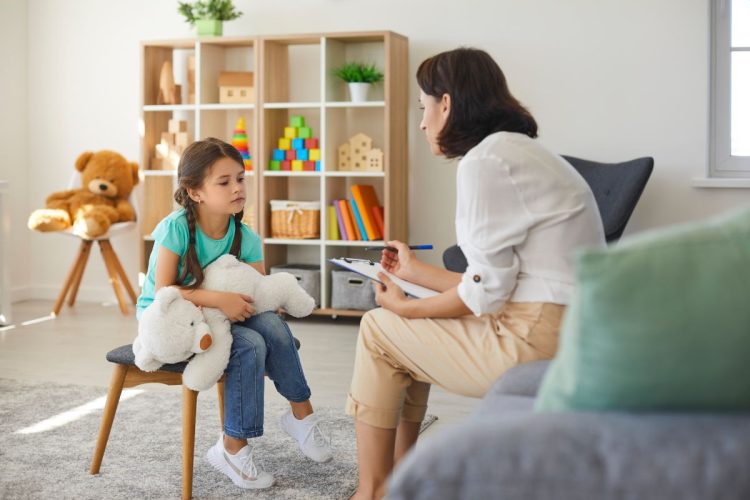ADHD stands above mere excess energy and brief loss of focus as a medical condition that impacts neurodevelopment. ADHD functions as a developmental disorder which disturbs children in their management of attention spans and behavioral control and emotional responses.
Families who encounter this diagnosis must deal with a challenging therapeutic experience. The current multidimensional ADHD therapeutic approaches find counselling as their most powerful therapeutic tool that helps children achieve better outcomes.
Understanding the Emotional Landscape of ADHD
Due to their ADHD children struggle with issues which extend past their classroom environment. Children deal with problems in impulse control and emotional response as well as difficulties establishing relationships and facing problems with self-acceptance.
Procedures which typically treat ADHD combine behavior treatments with medications while showing success at managing essential symptoms. Children requiring comprehensive care must receive emotional as well as psychological support because these treatments alone might not solve their deepest difficulties.
The deep effects on children are made possible through counselling. Through counseling children obtain a protected environment where they can evaluate their emotions and learn about their behavior patterns as well as acquire strategies for personal control and self-assurance.
Counselling: A Bridge Between Therapy and Real-Life Challenges
The purpose of counselling during ADHD therapy extends beyond simple verbal expression. Every child receives attention through this method which sets specific objectives based on their individual development level.
Through cognitive-behavioral therapy (CBT) and play therapy together with social skills training counsellors develop methods to tackle behavioral and emotional challenges of their patients. The continual school reprimands that a child faces leads to their internal transformation of these experiences into personal failures.
Through counselling a child learns to view failures as part of a lesson rather than low self-esteem indicators by getting help with mental thought restructuring. The improvement in mental health from counselling practice strengthens ADHD treatment methods.
Building Self-Awareness and Emotional Intelligence
The power of counselling emerges through enabling clients to develop their self-awareness. Children identify the signs which lead to their frustration and anxiety as well as their hyperactive behavior.
The process develops their ability to both learn language and discover effective communication methods for expressing themselves in positive ways. An ADHD-diagnosed child of young age might frequently experience uncontrollable angry bursts.
The child would develop early frustration identification skills through counselling which enables them to apply breathing exercises and positive mental reinforcement before confronting stressful situations. Such tools evolve into key elements of their ADHD treatment and assist them in handling daily scenarios independently.
Strengthening Social Skills and Relationships
When children have ADHD they battle to sustain friendships because of their impulsive tendencies and their incapability to notice social indicators. A counseling environment allows them to exercise their learned skills under supportive conditions.
Exercises that combine role-playing with group discussions and guided peer interaction guide children to succeed in social interactions with others. An increase in social confidence automatically results in greater self-esteem. When children with ADHD develop confidence and self-worth, they can overcome social isolation.
Supporting the Whole Family
Both parents and siblings are substantially influenced by their child’s ADHD disability. Parents experience frustration along with severe exhaustion and lack confidence in their ability to offer adequate support to their affected child.
The therapy incorporates family meetings to establish better household communication and manages sensible family expectations followed by interventions that back ADHD treatment efforts.
By taking a full-system view of the situation, the treatment team works better as one unit so family members develop increased understanding for each other and more personal backing.
Integrating Counselling into Comprehensive ADHD Treatment Plans
The treatment of ADHD by medication and academic programs finds powerful support through counseling which connects medical treatments to normal life situations.
The therapy merges with the child’s development to train effective coping skills that children practice in normal environments. Putting counselling into use with ADHD therapy plans does not intend to replace standard treatments but increases their effectiveness.
Through counselling children develop strong resilience and emotional intelligence and practical skills which guarantee long-term success following symptom management.
Conclusion
Adolescents diagnosed with ADHD should consider counselling as an essential component because it serves as their foundation to achieve success. Through ADHD counselling, children gain abilities for symptom control which enables them to reach life goals and develop successfully.
Receiving appropriate guidance will help children overcome the obstacles ADHD presents. The implementation of counselling represents an essential treatment component which exceeds therapeutic functions for patients with ADHD.
Children learn growth through counselling because the program addresses their emotional development alongside self-regulation and interpersonal abilities. The incorporation of ADHD therapy as part of an overall treatment approach ensures children will receive all the necessary care needed to succeed socially, academically and emotionally.
Counselling is also considered as one of the personal and empathetic ADHD therapy methods because it understands each child’s complete being beyond their symptoms. Children who receive professional help will eventually develop confidence while making authentic relationships that help them maximize their abilities.




